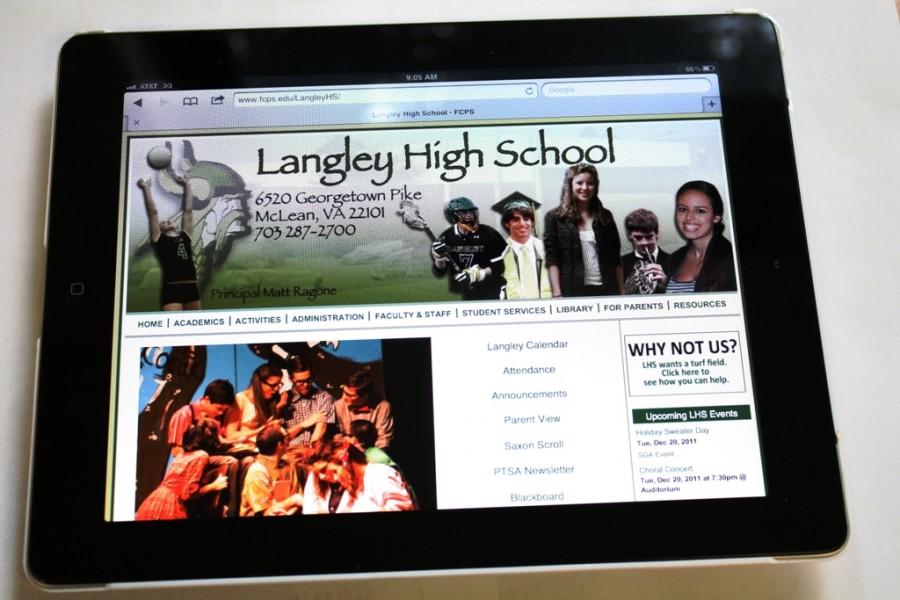School supply lists could undergo drastic changes in the coming years as textbooks turn to Kindles, agendas turn to iPads and the Apple Store becomes the new Office Depot. Langley does not currently allow personal electronics in its classrooms, but as other Fairfax County schools take steps to incorporate these devices, Saxon Country could soon follow.
At Thomas Jefferson High School for Science and Technology, students are allowed—and sometimes even encouraged—to bring laptops to their classes in order to take notes on lectures or surf the web for information. However, there are some concerns to having easy access to laptops and other electronics because of the increased threat of theft, cheating or just plain online distractions.
For instance, property theft has been a problem at Langley in the past. Cell phones are sometimes snatched from backpacks and wallets go missing. So would bringing even more valuable items trigger more incentive to steal?
Emily Gale, a senior at TJ, notes that at her school theft is not a widespread problem. In fact, it is shockingly rare. “Students can usually leave laptops on top of lockers and in unlocked classrooms and come back to find them again.”
However, some Langley students are doubtful that this could ever be the case here. “There is already theft of devices like cell phones, so bringing more expensive technology could potentially make the problem even worse,” said senior Spencer Shabshab.
An additional concern among teachers and administrators would be increased access to social networking websites—which could lead to cheating scandals similar to the ones that swept through AP Government and AP Environmental Science classes last year.
“Technology is good when used appropriately.” -Mrs. Arlene Randall, Cooper Middle School Principal
Another startling fact is that, unlike many high schools—including Langley—CooperMiddle School has developed a tech-friendly program that allows students to use laptops, iPads, etc. if the devices are registered with the school’s technology department. “Technology is good when used appropriately,” said Cooper Principal Ms. Arlene Randall.
Longfellow Middle School has a similar policy in place, which also allows students to check-in their personal electronics. “We have over 100 student devices already in use,” said Ms. Mary Reid, the School-Based Technology Specialist there.
Because lower grade levels appear to be more wired-in to technology at school, Cooper and Longfellow students who are currently allowed to use laptops will suddenly be unable to use the devices once they enter Langley—another inconsistency with the current policy.
Some Langley seniors say that they would value the opportunity to become comfortable with using technology in classroom settings because laptop use is usually a necessity once students enter college. “We should become accustomed to it now,” said Shabshab.


